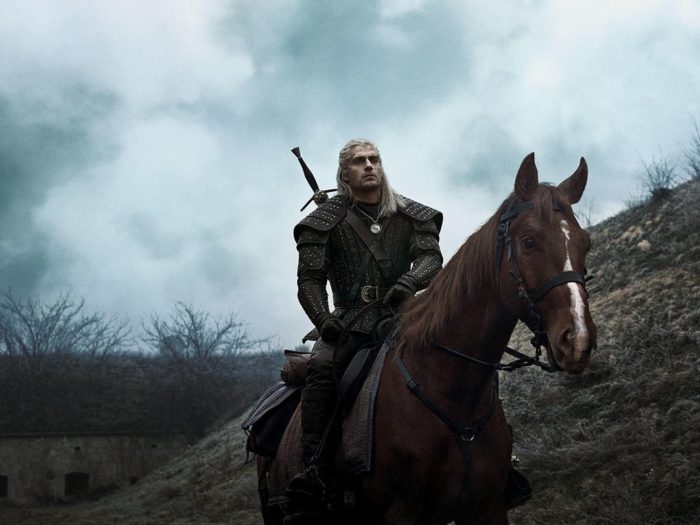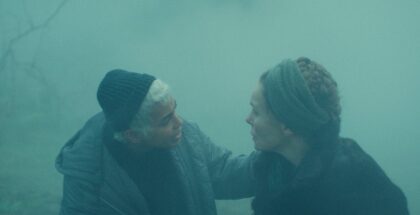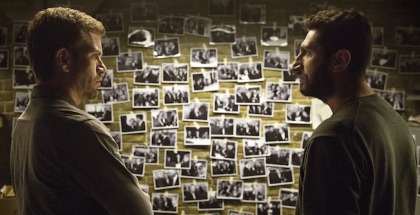Netflix UK TV review: The Witcher Season 1 (spoilers)
Review Overview
Pacing
5Story
6Appeal
6Mike Williams | On 07, Jan 2020
Note: The following review has minor to major spoilers scattered throughout. Not seen The Witcher? See our spoiler-free review here.
Having watched The Witcher’s debut season in its entirety, it’s safe to say that it’s no Game of Thrones substitute and shouldn’t be measured against it (even though it inevitably will). Second, for anyone unfamiliar with the franchise’s acclaimed novels or video games, it can certainly feel a little inaccessible and befuddling when it comes to involving and immersing oneself into the world that Henry Cavill’s Geralt of Rivia so boldly roams.
This is, by and large, a grey-paletted world that tries to feel raw, dangerous and grim with every turn; from the scene where Geralt emerges from a swamp to slay a hideous water troll to the landscapes he and our collective of central figures traverse, it’s consistently bleak and dull, as it manages to create a semi-believable world that feels awfully familiar to other TV and cinematic fantasy stories.
Cavill’s Geralt, a lonesome, infamously dangerous Witcher, grunts his way across the lands as a white-haired nomad-cum-slayer of monsters, demons and, when it suits, people. What becomes evident early on is how one-dimensional Cavill’s character is. Whether it’s intentionally written this way is unclear, but what is apparent after the opening few episodes is that Geralt’s lack of charm and limp persona is compensated by Cavill’s chiseled buffness and impressive sword skills (not a euphemism).
The fight sequences, alongside the show’s fast-paced, unforgiving choreography, craft some of the better moments in the season. They’re scattered through each episode, in some more than others, but it’s difficult to ignore the quality of The Witcher’s weapon-wielding and visceral splatterings of blood.
Whether a show with noticeable peaks and troughs could be considered a success is subjective to say the least. The Witcher be divisive for this reason as well as for its accessibility. Yes, it was the same with Game of Thrones for anyone who hadn’t read George RR Martin’s novels, but the issue here is that, on the whole, it’s a slog. Rarely does an episode end with any sort of cliffhanger or revelation to carry us over to the next, which, in turn, makes it harder to want to keep watching.
Despite Cavill being advertised as the series’ brutish lead, his role is sometimes committed to the background, as Anya Chalotra’s Yennefer immediately steals the limelight when introduced as the horrendously abused outcast child who is treated worse than the pigs at her so-called parents’ farm. After being sold (for half the price of said oinker) to a notorious witch named Tissaia (MyAnna Buring), both her fortunes and amount of screentime improve dramatically.
Not only does the focus now firmly shift to Yennefer’s plight, it also genuinely begins to feel like her story rather than Geralt’s – especially when her perceived hideous nature (in this case, a physical deformity that appears to be holding her back from fulfilling her witching potential) is replaced by a beautiful, aesthetically perfect vessel that also transforms her attitude and supernatural abilities. In 2019, the concept of beauty denoting perfection and power and disability pointing towards pigsty peasantry is particularly crass; we now have a central pairing of beautiful people traversing an ugly world, as Yennefer and Geralt cross paths and forge a connection based more on sexual chemistry that any other apparent draw.
Where other fantasy shows conform to a steady and progressive narrative, The Witcher takes a somewhat different approach – even though we don’t necessarily know it straight away. What could be mistaken for episodes that continue in some sort of chronology soon shatter that illusion when an old acquaintance of Yennefer’s casually throws out that it’s been 12 years since they’d seen each other just a few episodes earlier.
Ultimately, the series struggles to structure itself into anything resembling a coherent overarching arc, making it difficult to latch onto any subplots besides Geralt’s predetermined partnership with young Princess Cirilla (Freya Allan). It’s an obvious conclusion that they’ll come together, as is prophesied to each on a number of ham-fisted occasions. Inevitably, we see their satisfying embrace right at the finale, enticing us with a buddy-up Season 1 adventure that’ll no doubt begin to uncover her magical potential and, with any luck, develop Geralt into something stronger. And if it can offer a dynamic half as good as The Hound and Arya Stark’s odd coupling midway through Game of Thrones, it’ll be a pleasant surprise.
On reflection, Season 1 of Netflix’s epic is lacklustre and sluggish in getting from what is essentially A to B. Its filler in the middle – various throwaway encounters and quest-like events – feel like padded story to get to where we want to be. That said, there’s enough post-battle, post-Geralt/Ciri to tempt you to tune into Season 2: when it hits, either this year or next, there’s bound to be a modicum of intrigue as to whether it can elevate itself into a more impressive, more immersive experience.
The Witcher: Season 1 is available on Netflix UK, as part of an £9.99 monthly subscription.




















